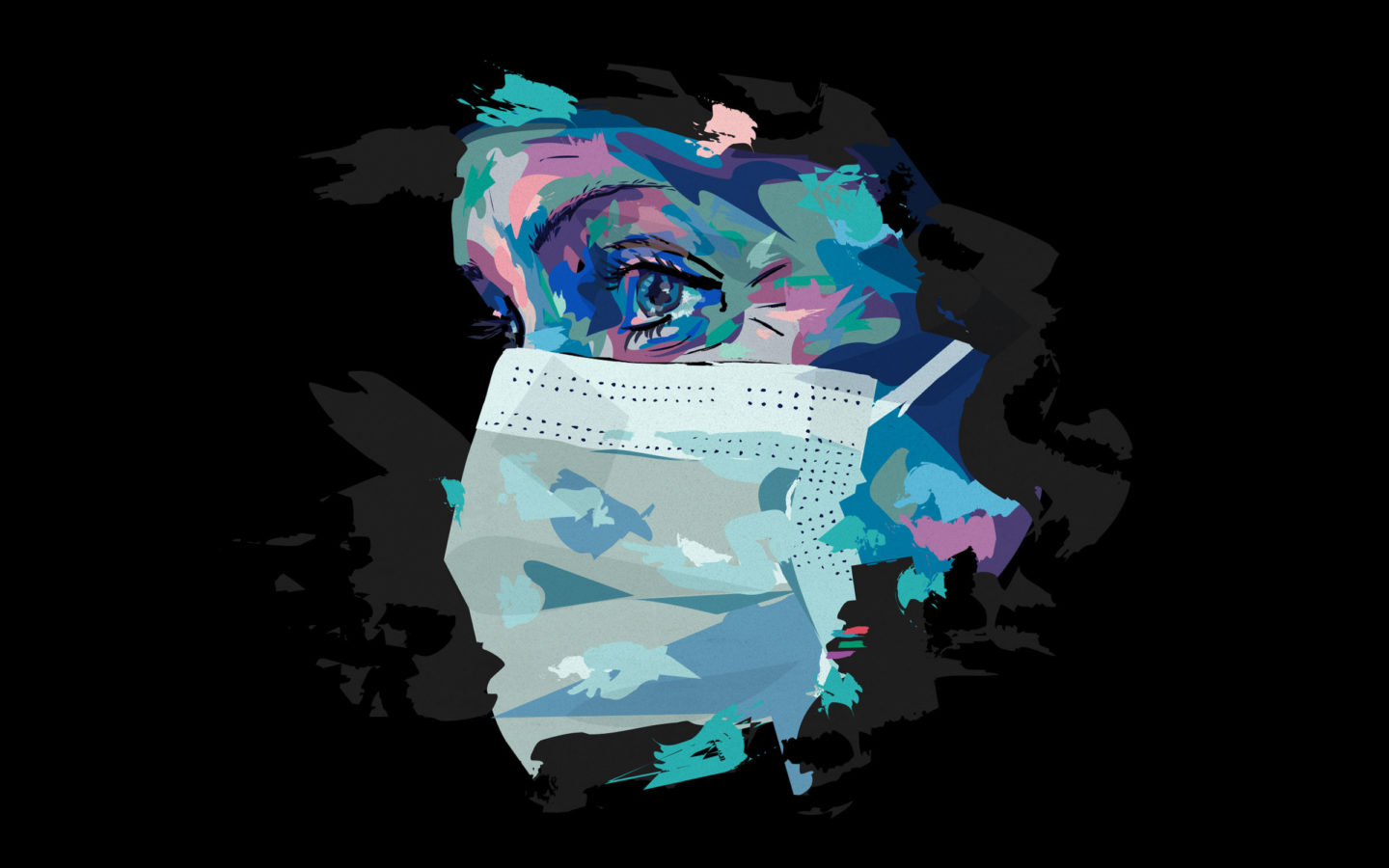- Thanks to COVID-19, our stress levels are through the roof, prompting some nurses to consider ditching their scrubs for good.
- If that’s you, you’re not alone. Even before the pandemic, two-thirds of nurses say their job negatively impacts their health and 34% of new nurses experience burnout in their first two years.
- We can only take so much. Burnout drives too many nurses to leave the job, or worse, succumb to depression, substance abuse, and even suicide.
- Coping tools like staying present, practicing resilience, and finding a core set of colleagues to lean on can help you manage; but to see real change, we have to start getting real about what’s going on.
Exhaustion. Incivility and hostility. Feelings of helplessness. Headaches, sleep disruption, digestive troubles. Rough day on the job — or just another day as a nurse?
With two-thirds of nurses saying their job negatively affects their health and 34 percent of new nurses burning out in their first two years, we won’t waste time debating whether burnout in nursing is “a thing” or not — we all know nurses face extremely high levels of occupational stress, with serious emotional and physical consequences.
The exhaustion, cynicism and decreased sense of personal accomplishment pushes us to the brink and puts our patients at risk. This was already a huge problem — and COVID-19 is just adding fuel to the fire. We’re burning out faster and more permanently — three-quarters of nurses in a recent study said they were experiencing high levels of emotional stress and anxiety due to the pandemic, and 67 percent said they were planning to leave their positions.
What’s driving the desire to leave? Well, we’re facing even longer hours, higher patient ratios, an unprecedented virus and severe emotional strain. The shifts are tough — patients are alone, sedated and on ventilators. Then at home, we’re isolated from loved ones to avoid exposing them.
We can’t stop the virus — but we can’t ignore the emotional impact it’s having, either. And despite headline after headline about the burnout crisis, in many units and on many floors, it still feels like this is just the way it is.
It feels like it’s on us as nurses to self-manage. We need to be more resilient, dig even deeper and work even harder — our healthcare system might be chaotic and dysfunctional, but it’s our responsibility as nurses to keep the whole ship afloat. If we crash and burn, well, that’s just part of the deal.
Do we sound bitter? A little … burned-out?
We are. We’ve seen too many of our colleagues leave the profession, or worse, succumb to depression, substance abuse and even suicide — we face a higher risk of all three than the general population.
We can’t just accept these as hazards of the trade. In the Year of the Nurse, as we face generational changes to the profession, it’s time for things to change.
And while there are reasons to be frustrated — angry, even — there are also a couple reasons to believe that the conversation about burnout is shifting.
The first reason to believe is simply a broader acknowledgement that nurses are people — and can only take so much.
Look, the references to nurses as superheroes or angels are flattering, sure. And when you make a tricky diagnosis or stop a crisis in its tracks, they can feel accurate, too. But at the end of the day, we’re as human as everyone else — and that means identifying and being open about the depth of human emotions that nursing inspires — emotions like anger, joy, gratitude, sadness and, yes, exhaustion and irritability.
When we’re on the floor, we have to keep it cool and professional. But after the shift, we need to be able to talk about what happened and how it affected us. The recognition that we’re just people trying to do our best for our patients, our colleagues and ourselves is a game-changer. If we can talk about it, we can address it.
The second reason to believe is that burnout is now considered an occupational hazard, not a personal problem.
As research on burnout grows, there is a broader acknowledgement that burnout is a natural response to chronic stress, often exacerbated by administrative issues like understaffing. And it’s contagious — when tension, stress and toxicity are palpable, an organizational burnout crisis is imminent.
This is key when it comes to finding solutions — self-care is important, vacation time is important, prioritizing your mental and physical health is important. But all of that’s a drop in the bucket when you’re facing inadequate staffing, extremely acute caseloads, no breaks, a lack of equipment, inadequate training for a situation or a hostile working environment.
It’s a vicious cycle. The very passion we have for healing, nurturing and caring for others can keep us in an unsafe, unhealthy environment. We’re not going to walk out on an understaffed floor. We’re not going to leave a patient who needs us just because our shift is over.
But if we don’t take care of ourselves — we can’t take care of them, either.
Ultimately, burnout will always be a threat — there’s no specialty or facility that can promise to never wear you out. But there are a few strategies shown to reduce its prevalence and impact.
1. Being present and aware
In general, mindfulness — or practicing awareness throughout the day — can make a big difference. No, yoga and deep breathing doesn’t cure burnout. But identifying patterns and emotional responses during the workday can help nurses better and more articulately raise issues with administrators. When we feel like we’re drowning, it can be hard to calmly communicate the challenges we’re facing. But taking the time to recognize and verbalize what’s happening and how it’s affecting us, before we take it out on a patient or colleague, is one way we can ensure leadership understands what factors are contributing to burnout.
2. Resilience training
Mindfulness is also the cornerstone of another strategy in the fight against burnout, which is resilience training. This practice seeks to shape the way our brain interprets and adapts to situations through strengthening emotional, cognitive and mental, physical and spiritual resilience. This isn’t a fancy name for “just grin and bear it” — research shows that resilience can be learned and strengthened through legitimate training programs like “Resilience and Thriving” from the National Wellness Institute or the American Nurses Foundation’s Well-Being Initiative.
3. Social support
Social support — characterized by close and confiding relationships in the workplace, including colleagues and administrators — is also important. The ability to share concerns and difficulties with others without fear of judgment has been shown to directly reduce the risk of emotional exhaustion.
Every nurse will have a bad shift now and then — and maybe a couple in a row. But we can change the conversation about burnout, and to see any change in our organizations, we have to start talking. It’s not a bitter pill to swallow, it’s not a personal problem, and it doesn’t just go away on its own. Burnout is a sign that something isn’t right — and acknowledging its causes and consequences is the first step in making a shift.


